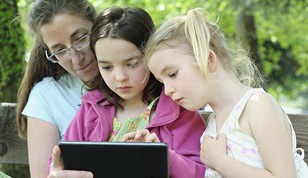Blog Categories
Search Blog
Blog Categories
Research Round Up: Psychology in the News
This week’s blog post brings attention to some new and exciting research in the world of psychology. As psychologists, our training emphasized both research and practice. Our work at Boomerang Health brings both worlds together as our work is evidence-based: our assessment and treatment approaches are grounded in research. It’s important that psychologists stay up to date on research in their field, so that it can inform their way of working with clients. In my opinion though, the findings from research need to be accessible to everyone. The following articles/research studies are timely, topical and are particularly relevant to the children, teens and families that we work with at Boomerang Health.
Autism Occurrence by MMR Vaccine Status Among US Children With Older Siblings With and Without Autism
Research like this is so helpful in putting the “vaccines cause autism” myth to rest. As this study documents, vaccines do not cause autism, even in siblings who are considered higher-risk for an autism diagnosis. The abstract can be found here (the full article can be read by susbscribing): http://jama.jamanetwork.com/article.aspx?articleid=2275444.
Parental Concerns, Provider Response, and Timeliness of Autism Spectrum Disorder Diagnosis
Researchers have found that parents may be picking up on the symptoms of Autism Spectrum Disorder (ASD) much before their doctor recommends further assessment. Doctors tend to be more proactive in their response to parents of young children with symptoms of intellectual or developmental delay than for parents with young children demonstrating symptoms of ASD. The more proactive the doctor, the shorter the delay in ASD diagnosis. The full article can be found here: http://www.jpeds.com/article/S0022-3476%2815%2900254-1/fulltext.
Origins of Narcissism in Children
As parents, we want our children to have a good sense of themselves, to see their own positive attributes, their strengths and their abilities. We want them to have robust self-esteem. How we communicate this to children from an early age, however, may lead to a sense of entitlement and superiority, if the message is “you are special” rather than “I love you”. The research isn’t suggesting that parents skimp on praise or hold back on positive feedback. What it is emphasizing is how parents may “overvalue” their child, by sending messages that the child is more important or more superior than others, and this may lay the foundation for narcissism and entitlement as the child grows up. The abstract can be found here (the full article can be read by subscribing): http://www.pnas.org/content/112/12/3659.abstract.
Sleep and Use of Electronic Devices in Adolescence: Results from a Large Population-Based Study
Recent research published from Norway suggests that screen time during the day is linked to decreased sleep in teens. In this study, screen time was measured in terms of the amount of time teens spent playing TV-based console games, computer games, writing and reading emails, chatting on the internet, use of tablet or cell phones throughout the day, not just at night. Teens were found to be “3 times more likely to have under 5 hours of sleep” if they reported spending two or more hours online. Reduced sleep was also 3.5 times more likely if they spent 4 or more hours on any type of screen. Given the importance of sleep in adolescence in particular, these results underscore the need for more restricted media use. The full article can be found here: http://bmjopen.bmj.com/content/5/1/e006748.full.
Impact of an Affective Intervention on the Friendships of Kindergarteners With Disabilities
Inclusive programming alone does result in a child with a disability being accepted by peers in kindergarten. Recent findings from the University of Vermont suggest that kindergarten classrooms need to be set up in ways that allow children with disabilities to foster positive relationships with other students. What the researchers did find was that having a best friend serves as a protective factor for children with disabilities; friendships increase peer acceptance in inclusive classrooms. Open-ended, dramatic play-based activities may not lend themselves to creating these friendships, even if they have a disability-awareness focus, as many children with disabilities don’t have the social skills necessary to initiate and maintain these interactions with their peers. The necessity of helping young children with disabilities develop friendships, through an emphasis on enhancing social skills and self-regulation in the classroom, is therefore paramount. The abstract can be found here (the full article can be read by susbscribing): http://tec.sagepub.com/content/early/2015/03/04/0271121415571419.abstract.






